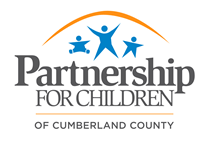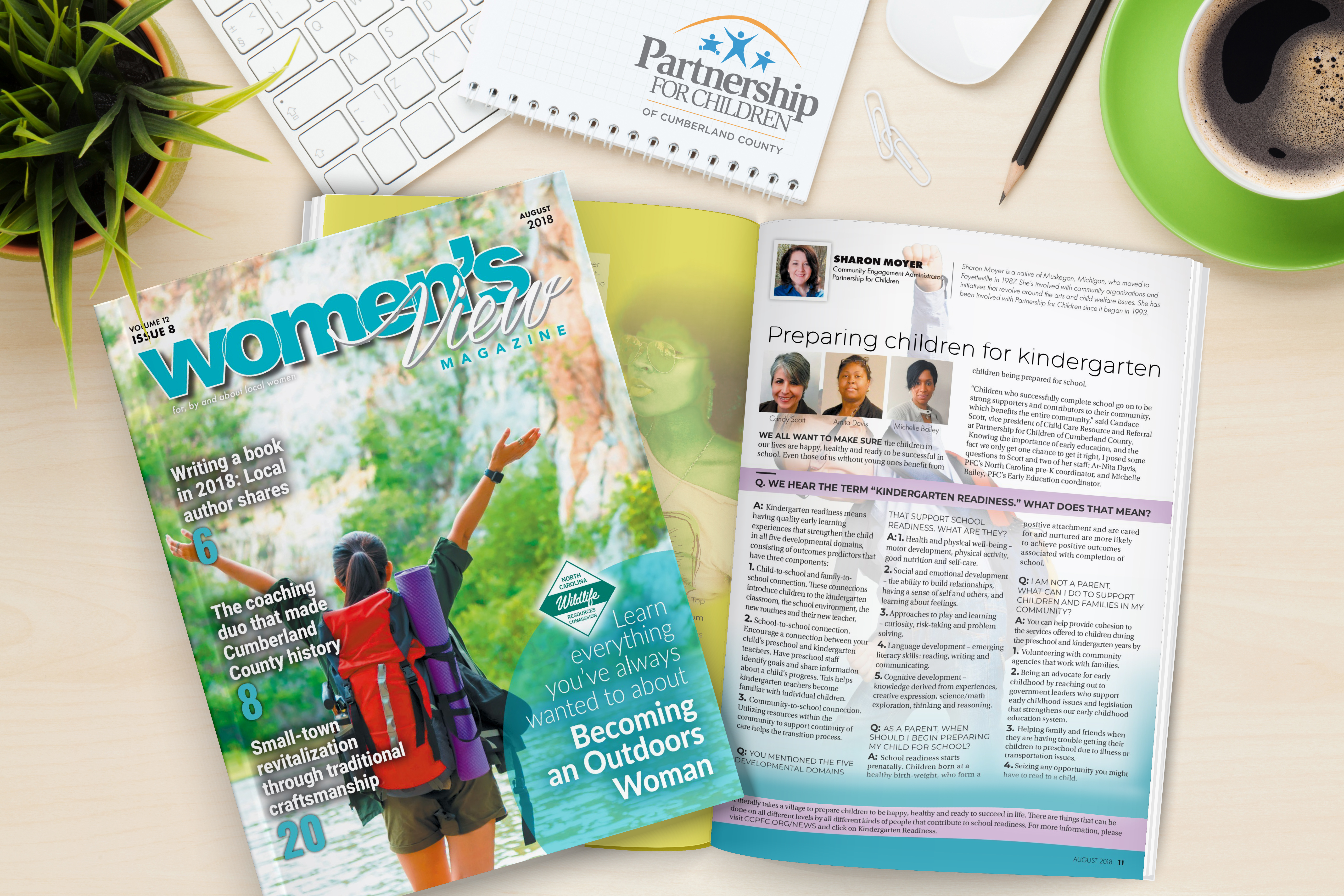Preparing Children for Kindergarten
We all want to make sure the children in our lives are happy, healthy and ready to be successful in school. Even those of us without young ones benefit from children being prepared for school.
“Children who successfully complete school go on to be strong supporters and contributors to their community, which benefits the entire community,” said Candace Scott, vice president of Child Care Resource and Referral at Partnership for Children of Cumberland County. Knowing the importance of early education, and the fact we only get one chance to get it right, I posed some questions to Scott and two of her staff: Ar-Nita Davis, PFC’s North Carolina Pre-K coordinator, and Michelle Bailey, PFC’s Early Education coordinator.
Q. We hear the term “Kindergarten Readiness.” What does that mean?
A: Kindergarten readiness means having quality early learning experiences that strengthen the child in all five developmental domains, consisting of outcomes predictors that have three components:
- Child-to-school and family-to-school connection. These connections introduce children to the kindergarten classroom, the school environment, the new routines, and their new teacher.
- School-to-school connection. Encourage a connection between your child’s preschool and kindergarten teachers. Have preschool staff identify goals and share information about the child’s progress. This helps kindergarten teachers become familiar with individual children.
- Community-to-school connection. Utilizing resources within the community to support continuity of care helps during the transition process.
Q. You mentioned the five developmental domains that support school readiness. What are they?
A: The following five developmental domains that support school readiness are:
- Health & Physical Well-Being – motor development, physical activity, good nutrition, and self-care.
- Social and Emotional Development – ability to build relationships, sense of self & others, and learning about feelings.
- Approaches to Play & Learning – curiosity, risk-taking and problem-solving.
- Language Development – emerging literacy skills: reading, writing and communicating.
- Cognitive Development – knowledge derived from experiences, creative expression, science/math exploration, thinking & reasoning.
Q: As a parent, when should I begin preparing my child for school?
A: School readiness starts prenatally. Children born at a healthy birth-weight, who form a positive attachment and are cared for and nurtured are more likely to achieve positive outcomes associated with the completion of school.
Q: I am not a parent. What can I do to support children and families in my community?
A: You can help provide cohesion to the services offered to children during the preschool and kindergarten years by …
- Volunteering with community agencies that work with families.
- Being an advocate for early childhood by reaching out to government leaders who support early childhood issues and legislation that strengthens our early childhood education system.
- Helping family and friends when they are having trouble getting their children to preschool due to illness or transportation issues.
- Seizing any opportunity you might have to read to a child.
It literally takes a village to prepare children to be happy, healthy and ready to succeed in life. There are things that can be done on all different levels by all different kinds of people that contribute to school readiness. For more information, please visit ccpfc.org/news and click on Kindergarten Readiness.
Article Courtesy of Women’s View Magazine
To read the full article in the August 2018 issue of Women’s View Magazine, go to http://pubhtml5.com/twqv/itdk. Or download a PDF version.
Looking for more information about the NC Pre-K program through Partnership for Children? Check out our NC Pre-K page for program requirements and to download the application.

